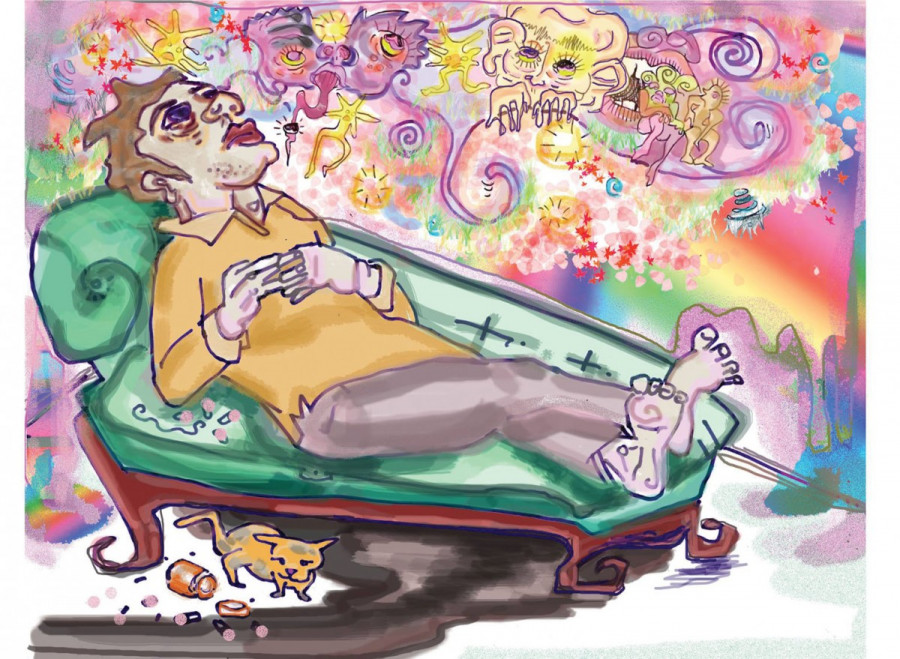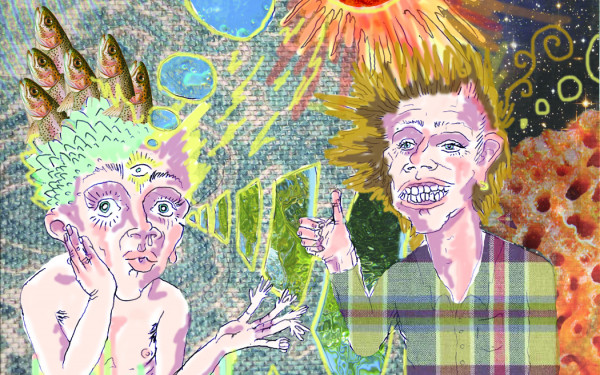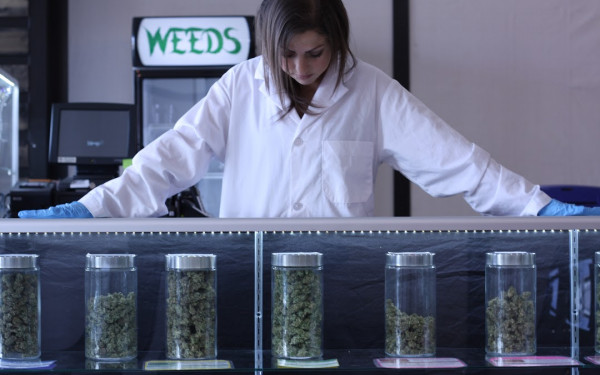A Psychedelic Renaissance
New Research on Psychedelics Is Unveiling Their Potential for Healing
As university students, we know how prevalent substance use is.
It’s practically impossible to go through your degree (or your day) without being exposed to the use of coffee, energy drinks, alcohol, cigarettes, pot, Ritalin or other drugs for a variety of reasons ranging from partying to relaxing to studying.
In our daily lives, the social acceptability of particular drugs is based heavily on stigma and the law, rather than on a sober evaluation of their effects and harms.
It’s perfectly acceptable for me to boast to my friends about how drunk I got on the weekend, but I’ll get weird looks and an uncomfortable response from the same people for wanting to talk about a profound and meaningful experience I had while on LSD, and this is despite the fact that LSD is far less harmful than alcohol.
The word “drug” itself often keeps us from developing a more nuanced understanding of these substances. This is a term that places cannabis, heroin and MDMA into the same category, despite their radically different effects and harm profiles.
In political dialogue, the term “drugs” is Orwellian; it’s a scare-tactic word that lumps the good with the bad and the ugly.
However, the last several years in the United States have seen this perspective challenged at least in the case of cannabis. Its medical and therapeutic applications are gaining recognition, and legal restrictions on its use have been relaxed in more than a dozen states.
It can be argued that psychedelics, including LSD, psilocybin (magic) mushrooms, mescaline and ayahuasca, are in a similar situation. The current legal classification holds that they are potential drugs of abuse with no medical or therapeutic application, but a lot of research in the 1950s and ’60s investigated these very applications and had promising results.
In recent years, the scientific study of these mind-altering substances has been revived, with scientists picking up lines of research that stopped dead in their tracks decades ago as a result of governments’ focus on the criminalization of these drugs. Their findings are very exciting, both inside and outside of medical and therapeutic contexts.
Some research explores the potential of psychedelics, when administered in a supportive setting, to spark profound spiritual or mystical experiences characterized by a sense of sacredness, a feeling of unity or interconnectedness, and feelings of transcending the self or ego. Such an experience is powerful and often very significant for the individual who’s had it. If approached properly, it can be a source of positive change in a person’s life.
A promising therapeutic use of psychedelics lies in individuals with anxiety related to life-threatening illness. A recent study that administered LSD to this population found that, even several months later, participants reported significant improvements in their anxiety, depression and overall quality of life, as well as reductions in their fear of death. Other research teams have had similar results with psilocybin.
Psychedelics may also have therapeutic potential in the treatment of addiction. Past studies had some success in using LSD in the context of therapy to treat alcohol abuse, with improvements sometimes lasting as long as six months.
A number of studies around the world have used MDMA to treat PTSD in war veterans and victims of violence and sexual assault. The results are inspiring, with many participants experiencing significant improvements or resolution of their symptoms. As well, a protocol has now been approved in the U.S. for the use of MDMA in therapy to treat social anxiety in autistic adults.
Psychedelics may also act as creative catalysts. One notable example is Nobel Prize-winning biochemist Kary Mullis, who has said he seriously doubts whether he’d have made the discovery for which he was recognized if he hadn’t taken LSD.
We can support the research taking place by reading and talking about it, and contributing to it if we can do so. Recent crowd-funding efforts for psychedelic research have been rather successful, and there are sure to be more in the future.
What can we do on a personal level? Start by acknowledging and then challenging what we think we know.
The mindset regarding drugs is similar to sex: if we’re not well-informed, the first thing to do is educate ourselves in order to sort the facts from the stigma and sensational preconceived notions—and to ensure our safety.
Seek out information on substances that you’re curious about; ask friends that have experience with these substances, or spend some time reading the endless trip reports that exist on sites like Erowid to get a better idea of what the subjective experience is like on a particular substance.
Most importantly, talk. I try to challenge drug stigmas by writing articles like these and enabling conversations with the people around me, and I urge you to do the same.


_600_832_s.png)



